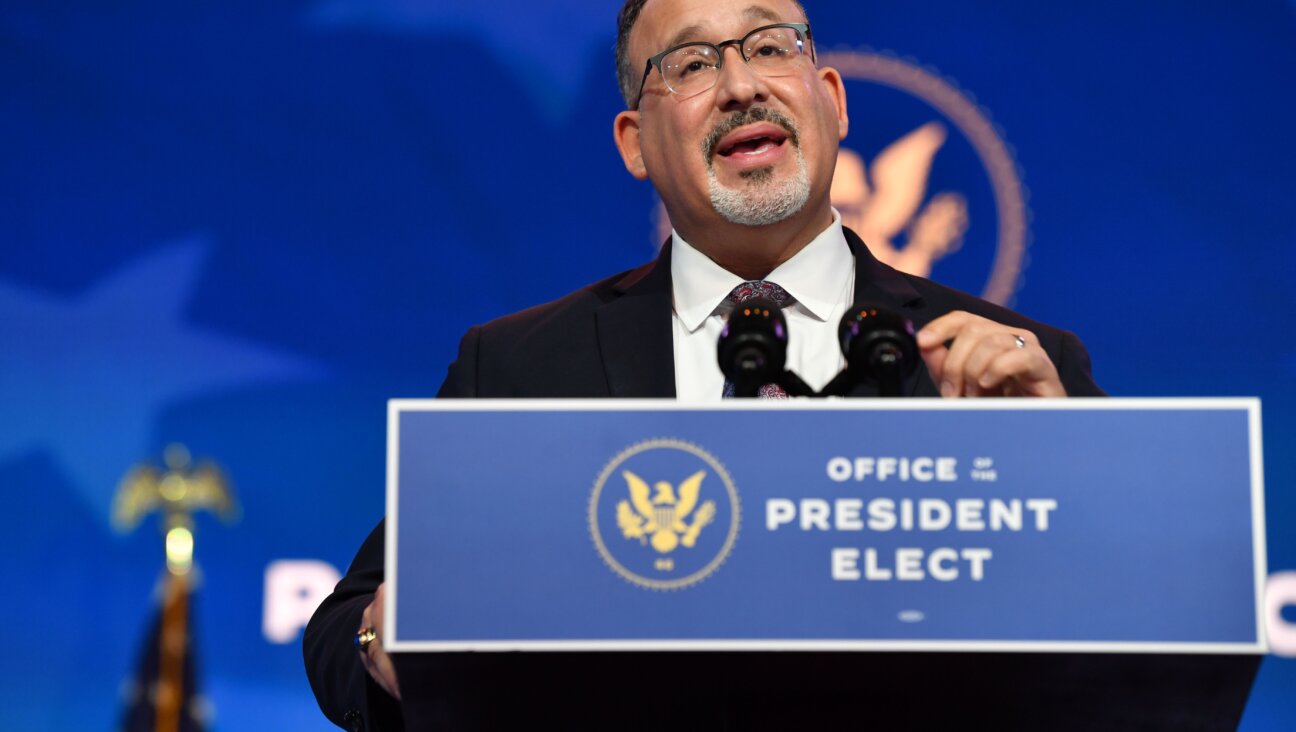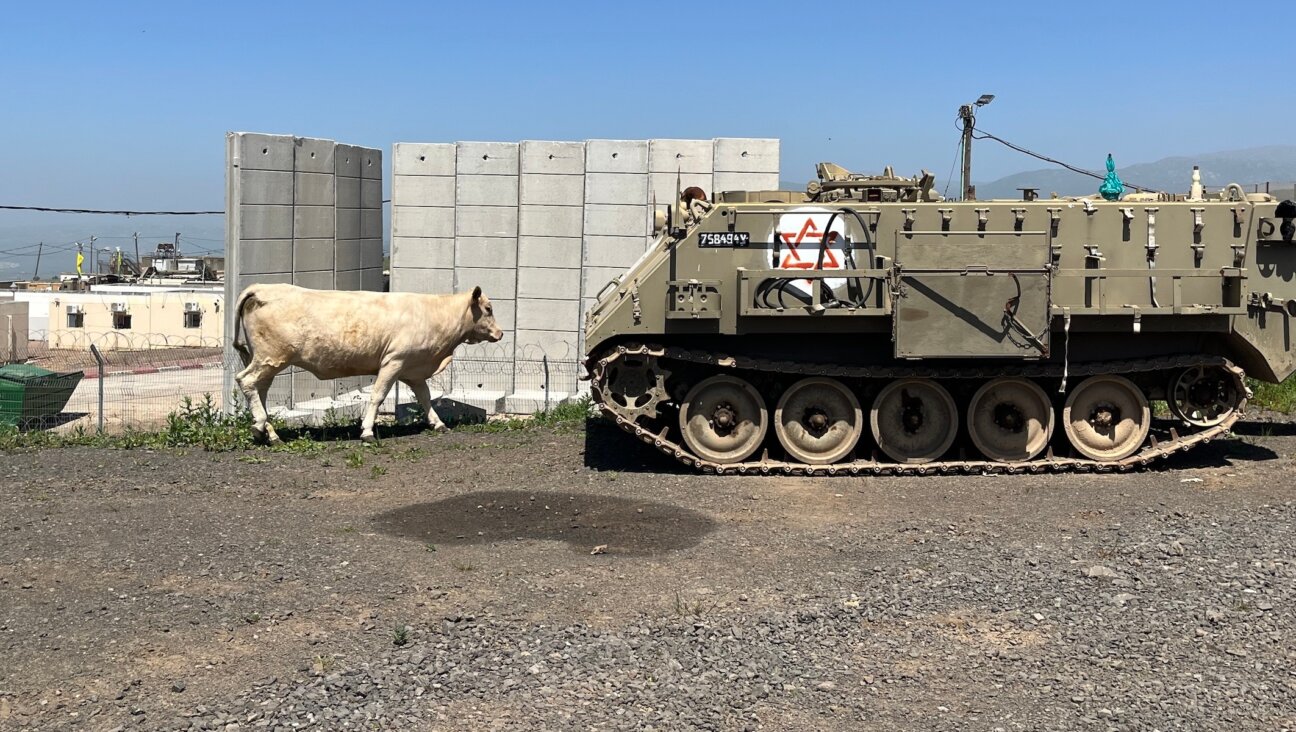Operation Abraham Coming to America?
In late August, the Centers for Disease Control and Prevention gathered hundreds of scientists and public health professionals in Atlanta for its biannual conference to discuss the issue of HIV prevention. One presentation, delivered by an Israeli doctor, managed to catch more media attention than any other, and to trigger the ire of a group of impassioned activists.
Dr. Inon Schenker’s proposition came in the form of a controversial question: Why not bring mass adult male circumcision to the Hispanic and African-American communities of America?
Schenker represents Operation Abraham, a group of Israeli doctors who gained expertise in circumcision by performing the procedure thousands of times, quickly and safely, on Russian-Jewish men who were raised outside Jewish tradition and immigrated to Israel in the 1990s.
Once evidence from clinical trials in Africa proved that circumcision could cut down heterosexual HIV transmission by as much as 65%, the Israeli doctors took their knowledge and innovative technique to Swaziland in southern Africa, where they began a pilot program last year. Now, Schenker thinks, America’s at-risk populations should be next.
On a recent afternoon, Schenker, a ruddy-faced and gregarious man, fresh from his presentation at the conference, sat down in a midtown Manhattan Starbucks and discussed the idea behind his project. He said he sees himself as a “matchmaker.”
“What clicked for me was bringing together the necessity of HIV/AIDS prevention with an Israeli expertise that is unprecedented. Our doctors had circumcised over 80,000 men [in Israel] in a very short time.”
Schenker’s American proposal came after the CDC announced last year that it was planning to fund a demonstration project in two community clinics that would, according to the CDC, “offer further insight into the feasibility and uptake of male circumcision among adult high-risk heterosexual males.”
“When this information reached us in Jerusalem, we said, hey, America has decided to move into adult male circumcision. Bravo,” Schenker said. “Could we support this effort in any way?”
The resulting abstract, which he presented in Atlanta, proposes to help train American doctors in much the same way as was effective in Swaziland: by working side by side and showing them how to circumcise efficiently. The innovation creates what Schenker called an “assembly line” technique, working in a team, using only local anesthesia and perfecting a “clamp” method of foreskin removal that uses forceps. The Israeli doctors boast that they are able to perform 30 or 40 circumcisions a day.
There are indications that Schenker might be getting ahead of himself. Though the CDC is pursuing the demonstration project, it has yet to fund it. And in an e-mail to the Forward, officials from the Atlanta-based agency also emphasized that they have “no current partnership with Operation Abraham” and that they are “not planning any CDC-led mass circumcision activities in the U.S. similar to what Operation Abraham has experience with.”
Another problem is that the overwhelming majority of HIV transmission in the United States is between men who have sex with other men. Circumcision has not been proved to make any difference in these cases.
Still, Schenker thinks he and his fellow doctors can save thousands of lives by helping prevent heterosexual transmissions. He pointed out that American taxpayers are currently funding adult male circumcision in Africa: Out of the nearly $50 billion approved last year by Congress for HIV/AIDS prevention and treatment in the continent, $17 million was set aside for such projects. And yet, a real debate had not been held in the United States about the benefits of the procedure. He wants to help start one.
At the conference, Schenker was met with hostility from some quarters. A fervent movement exists in the United States that opposes circumcising infants. People who call themselves “intactivists” had a strong presence, and even though Operation Abraham is focused on adult circumcision, Schenker said he was targeted.
“They were very aggressive in their response,” Schenker said. “I think they’ve done a bad job for their case. If you have an argument, state it; let’s discuss. If you have an emotional agenda, you don’t bring it into a scientific conference. You bring it to the newspapers, you put it in blogs. But not in a scientific conference. Science is science. Base yourself on evidence.”
David Wilton is a San Francisco-based lawyer who maintains a blog, Male Circumcision and HIV, that is widely read by intactivists. His only explanation for Operation Abraham’s motives is a cynical one: “It’s an effort to gobble up HIV-AIDS funds that is going into prevention efforts.”
The other difficulty Schenker must confront arises from taking a technique that was perfected while performing circumcisions for religious purposes and applying it to health needs. He sees this as “the very essence of innovation, the ability to take something that was closed within the religious domain and bring it to the outer world.” But others, Schenker acknowledged, could be led by “ignorance or cruelty or antisemitism” into assuming that his group had some kind of missionary motive.
The name, Operation Abraham, doesn’t help. Schenker said that there were internal debates about whether to change it. “Perhaps those who are not very, very versed in history and the Bible could misinterpret the name to relate to one religion or two religions or religion in general,” he said. But for him, Abraham is not referenced as a religious figure so much as “the first surgeon who circumcised not only himself, but his two sons.”
The blurring of these lines might create problems for Schenker and his venture. Eli Ungar-Sargon, a young filmmaker who was raised Orthodox but has made a documentary film, “Cut,” that questions the practice of circumcision, wondered if the two motivations, health and religious, were actually more intertwined.
“There has always been this subterranean desire to demonstrate the relevance of our traditions” Ungar-Sargon said, referring to the Jewish community, “whether it’s saying that eating kosher is healthy or the prohibitions around sex during a woman’s menses is healthier. This sort of logic comes from a place of apologetics, and it’s a very disturbing thing to me. It’s also a very weak argument.”
Schenker doesn’t think so. To him, the focus on Operation Abraham’s Jewishness or Israeliness is unfair and a distraction.
“If I was a New Zealander who for some historical reasons had identified that dozens of his countrymen were surgeons who had an experience with circumcision that no other country had, you would have no problem by saying New Zealanders are coming to teach Americans this helpful technique,” Schenker said. “That would flow without any reaction or emotion whatsoever. So what can we do that the country with that skill happens to be Israel?”
Contact Gal Beckerman at [email protected]

I hope you appreciated this article. Before you go, I’d like to ask you to please support the Forward’s award-winning, nonprofit journalism during this critical time.
Now more than ever, American Jews need independent news they can trust, with reporting driven by truth, not ideology. We serve you, not any ideological agenda.
At a time when other newsrooms are closing or cutting back, the Forward has removed its paywall and invested additional resources to report on the ground from Israel and around the U.S. on the impact of the war, rising antisemitism and the protests on college campuses.
Readers like you make it all possible. Support our work by becoming a Forward Member and connect with our journalism and your community.
Make a gift of any size and become a Forward member today. You’ll support our mission to tell the American Jewish story fully and fairly.
— Rachel Fishman Feddersen, Publisher and CEO
Join our mission to tell the Jewish story fully and fairly.

























